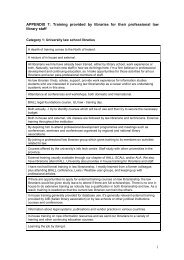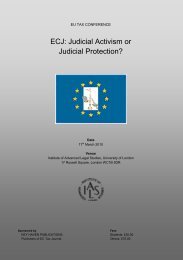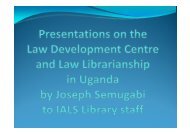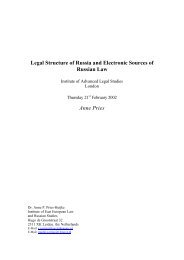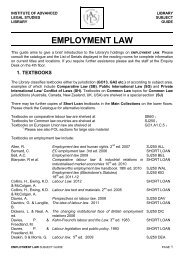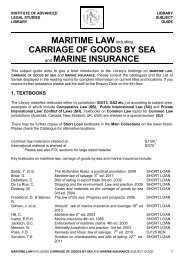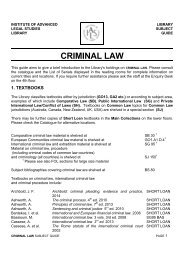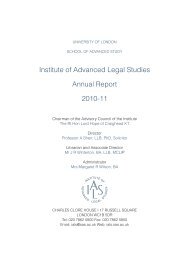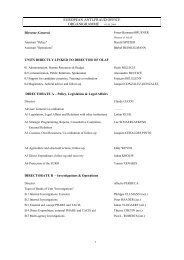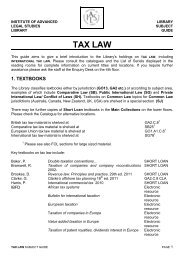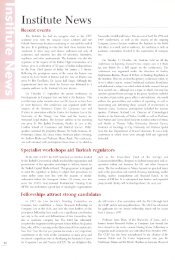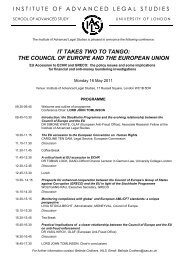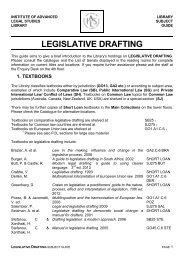a thesis - Institute of Advanced Legal Studies
a thesis - Institute of Advanced Legal Studies
a thesis - Institute of Advanced Legal Studies
Create successful ePaper yourself
Turn your PDF publications into a flip-book with our unique Google optimized e-Paper software.
116 IMPLIED TRUSTS.<br />
CHAPTER XVIII.—CONSTRUCTIVE TRUST WHERE LEGAL<br />
AND BENEFICIAL INTEREST NOT IN SAME PERSON.<br />
IN any case not within any <strong>of</strong> the preceding chapters,<br />
when there is no express trust, but the person having<br />
possession or control <strong>of</strong> property has not the whole<br />
beneficial interest therein, he holds the property in trust<br />
for the persons having such interest or the residue<br />
there<strong>of</strong>, as the case may be, to the extent necessary to<br />
satisfy their lawful demands.<br />
All that is necessary to establish the relation <strong>of</strong> trustee and<br />
ccstui que trust is to prove that the legal title is in one person and<br />
the equitable title is in another, (ffardoonv. Belilios, (1901) A. 0.<br />
at p. 123.)<br />
Consequently, wherever this state <strong>of</strong> affairs exists without<br />
having been brought about in any <strong>of</strong> the ways discussed in the<br />
previous chapters, a constructive trust arises.<br />
Dr. Whiteley Stokes in s. 94 <strong>of</strong> the Indian Trusts Act, 1882,<br />
states the law thus :—<br />
" In any case not coming within the scope <strong>of</strong> any <strong>of</strong> the preceding<br />
sections, where there is no trust, but the person having<br />
possession <strong>of</strong> property has not the whole beneficial interest therein,<br />
he must hold the property for the benefit <strong>of</strong> the persons having<br />
such interest, or the residue there<strong>of</strong> (as the case may be), to the<br />
extent necessary to satisfy their just demands."<br />
Mr. Underhill (6th ed. 138) says <strong>of</strong> this proposition that it<br />
doubtless includes all those relating to constructive trusts which<br />
have preceded it; but as it would be an endless task to enumerate<br />
every kind <strong>of</strong> constructive trust (for they are, as has been truly<br />
said, conterminous with equity jurisprudence), it seems better to<br />
call special attention to those classes which are most important and<br />
to bring all others within one sweeping general clause.



